May 15, 2025 | 23:32 GMT +7
May 15, 2025 | 23:32 GMT +7
Hotline: 0913.378.918
May 15, 2025 | 23:32 GMT +7
Hotline: 0913.378.918
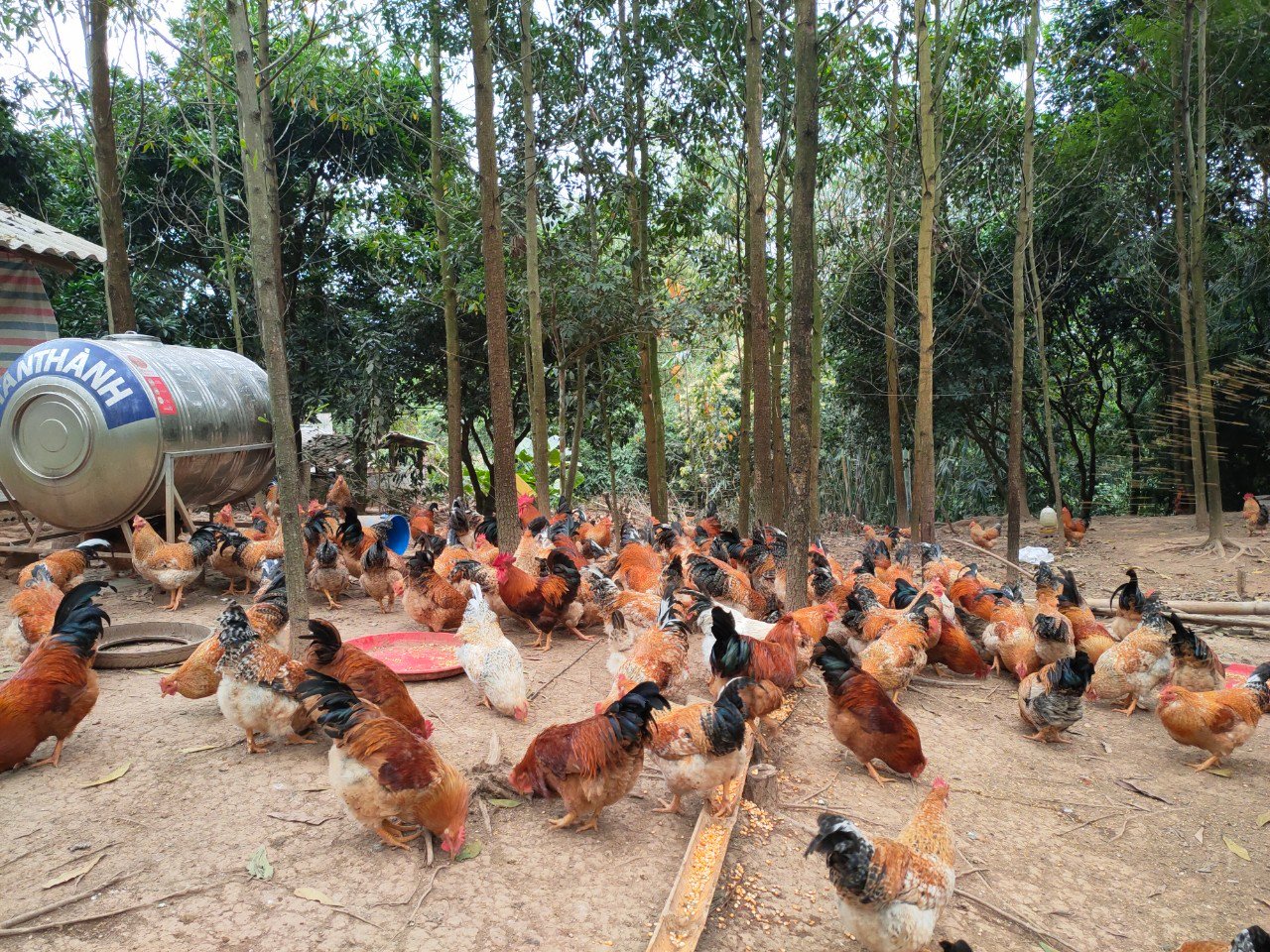
Tien Yen chickens are grazed under the forest canopy. Photo: Nguyen Thanh.
Tien Yen chicken, a domestic breed of chicken coming from Vietnam, is commonly referred to as the hill chicken or bearded chicken. Its origins can be traced back to the Tien Yen district of Quang Ninh province. For years, the Tien Yen chicken breed has garnered widespread popularity. However, locating the ideal Tien Yen chicken requires a trip to the right villages and hamlets.
In certain communes, such as Phong Du, Ha Lau, and Yen Than, remote and distant villages are able to graze parent chickens in a natural direction. These chickens have high resistance and are easy to raise due to the abundance of food sources, mainly agricultural by-products such as corn, potatoes, and cassava.
Dubbed the "Hill Chickens", these free-range birds are given the liberty to roam around the hill in search of food, which includes worms, crickets, ants, and termites. At nightfall, it is usual for chickens to take to the branches of trees in order to rest. Tien Yen chicken meat has gained popularity among consumers for its sweet and fragrant taste, firm yet crispy texture, and non-chewy and non-bellyful nature. This can be attributed to the relentless activities of the chickens throughout the day and their natural food supplies.
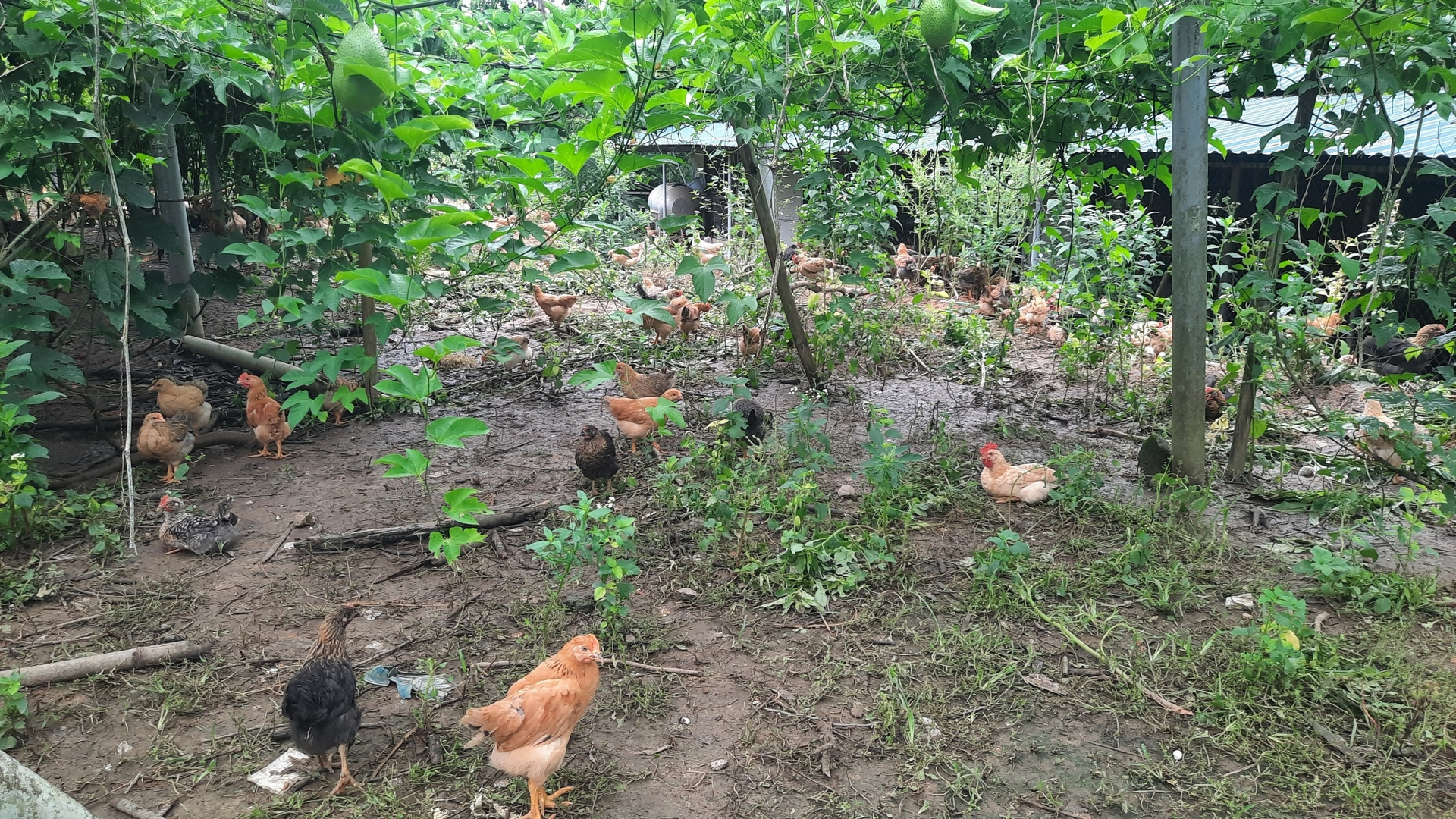
Tien Yen chickens eat medicinal plants and herbs in the garden. Photo: Nguyen Thanh.
Tien Yen district has recently developed a new brand of herbal chicken in an effort to enhance the quality of Tien Yen chicken and revamp the well-known local OCOP product. The initiative aims to improve the overall standard of chicken and promote the district's unique culinary offerings.
According to Mr. Ly Van Dieng, the Chairman of the Tien Yen District Farmers' Association, the consumption of Tien Yen chickens has experienced a decline over the past two years. This trend is due, in part, to the impact of the Covid-19 pandemic.
Mr. Dieng has announced that Tien Yen chicken products will be undergoing a refueling process. The breeding methods will be changed and herbal foods will be added to enhance the taste of the chicken, providing consumers with a unique and new experience.
Mr. Dieng reports that the experimental cultivation of Tien Yen herbal chicken has yielded positive outcomes, resulting in a delectable chicken with a distinct herbal taste. In a collaborative effort with the residents of Dong Ngu commune, Tien Yen district, Mr. Dieng has successfully established the district's first-ever herbal Tien Yen chicken farming model. At present, the available options for customers of this model are limited to chicken, which is prepared upon request.
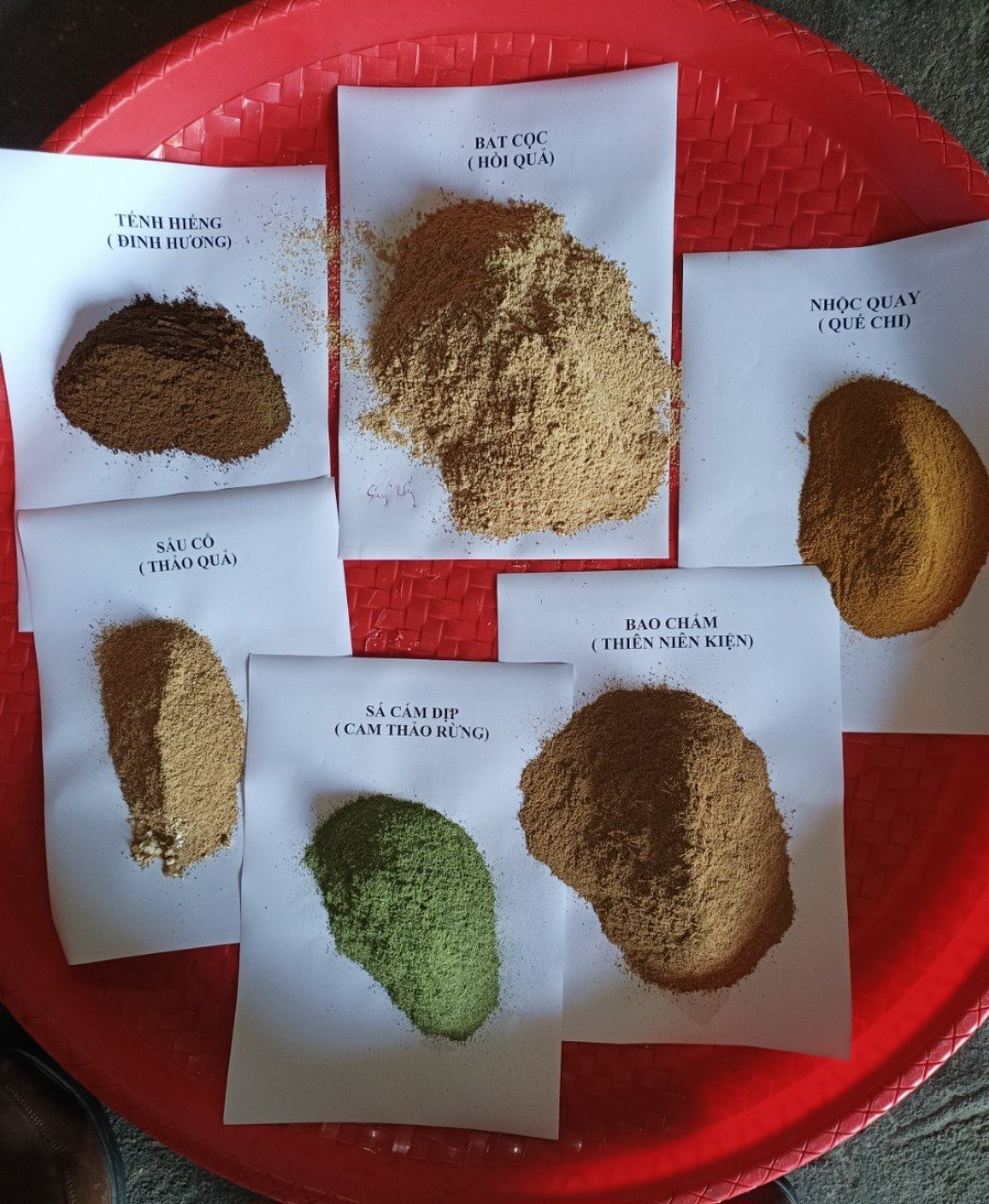
Dried herbs, ground into powder mixed into chicken feed to increase flavor as well as nutritional content. Photo: Nguyen Thanh.
In Dong Ngu commune, Tien Yen district, Mr. Nguyen Van Uoc has successfully raised the first Tien Yen herbal chicken model. According to Mr. Uoc, his family is currently utilizing a new method to raise 2,000 Tien Yen chickens. In the garden of the individual in question, a natural approach is taken to raising chickens. Additionally, medicinal plants and herbs such as betel nut, sweet gourd, and basil are grown. Tien Yen chickens that are fed with garden products and herbs have shown an increase in their disease resistance, particularly against asthma and intestinal diseases. As a result, antibiotics are not required during the rearing process.
Tien Yen chickens aged two months and above are reportedly fed with a blend of rice bran, corn bran, and banana stem, along with a mixture of dried and powdered medicinal herbs like anise, cinnamon, cloves, and wild licorice. Mr. Ly Van Dieng conducted a study on the main source of herbs for chickens, with the aim of determining the optimal ratio to enhance the flavor of Tien Yen chicken.
Quang Ninh province has successfully developed Tien Yen Chicken as a prominent One Commune One Product (OCOP). The product's electronic stamping and traceability rings are a testament to the province's dedication and hard work. The popular Tien Yen chicken, priced between 120,000 to 150,000 VND per kilogram, is known to frequently sell out, particularly during holidays and Tet. Farmers are set to benefit from a new product, Tien Yen herbal chicken, which is expected to increase the selling price of chickens by 15-20%. This development is expected to boost the income of farmers.
Tien Yen chicken is being sold through a network of markets, stops, and restaurants situated along National Highway 18A that runs through the Tien Yen district. The Tien Yen district has been actively promoting its locally sourced Tien Yen chicken to various establishments, including companies, restaurants, and supermarkets. Additionally, neighboring provinces such as Hanoi and Hai Phong have also been introduced to this specialty chicken for consumption. The Vietnam Record Book Center has recently recognized Tien Yen Chicken as one of the top 50 renowned Vietnamese delicacies, thanks to its delectable meat flavor.
Translated by Linh Linh

(VAN) Use of high-quality broodstock and biotechnology is regarded as the most effective approach to ensuring sustainable and economically viable shrimp aquaculture ahead of climate change and the emergence of increasingly intricate disease patterns.

(VAN) Carbon farming is a form of agricultural practices that helps absorb more greenhouse gases than it emits, through smart management of soil, crops, and livestock.

(VAN) This is a key content of the Memorandum of Understanding recently signed between the Vietnam Fisheries Society and Kunihiro Inc of Japan.

(VAN) To achieve the goal, local authorities and businesses in Kon Tum province have fully prepared the necessary conditions for the new Ngoc Linh ginseng planting season.
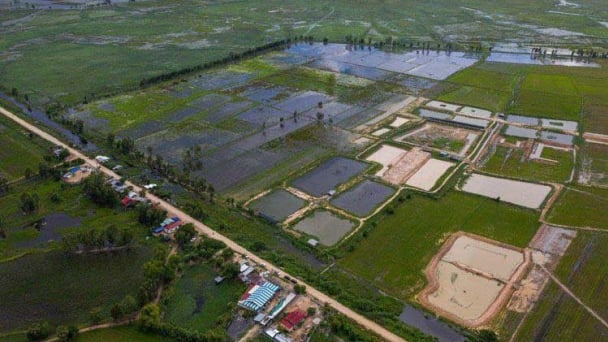
(VAN) Jiangsu province is gearing up to host training programs in Phnom Penh, the capital of Cambodia, this year to establish the Fish and Rice Corridor.

(VAN) Le Hoang Minh, representing Vinamilk, shared the company's experience in energy saving and green energy transition for production at a workshop held during the P4G Summit.
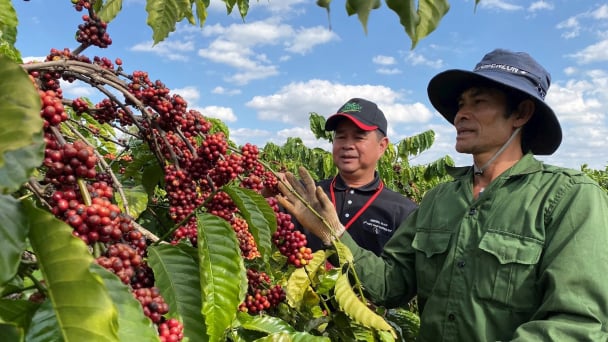
(VAN) Businesses emphasize fairness and equality when integrating social factors into their sustainable development strategies.